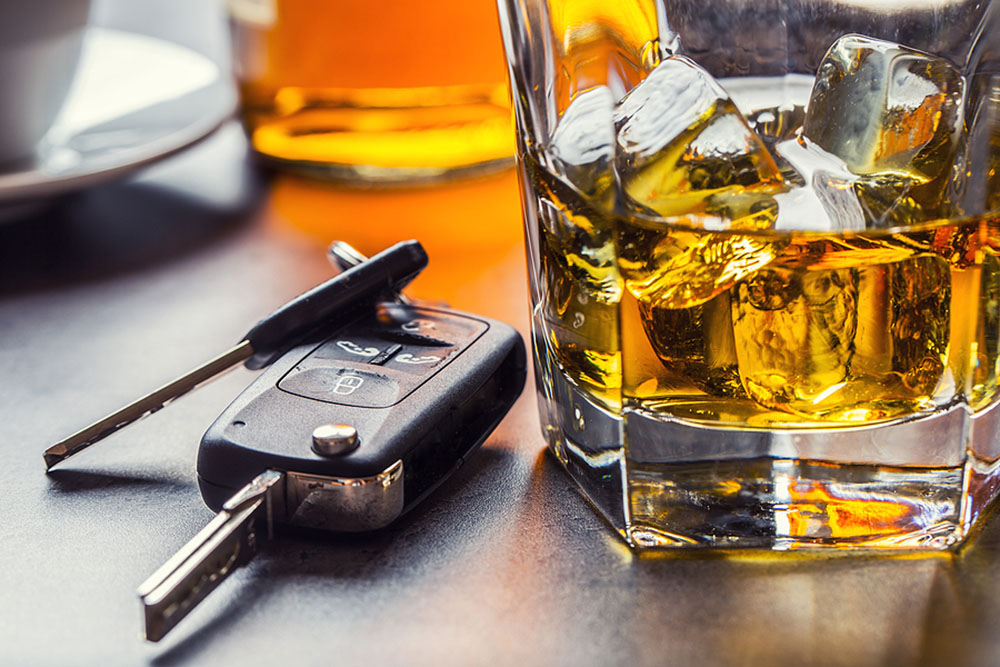What Happens if You Drive Under the Influence in Delaware?
Driving under the influence of alcohol or narcotics is against the law in Delaware and could result in a consequential DUI charge. The severity of the DUI charges and the consequences that follow will depend largely upon the circumstances involved in the DUI arrest, such as whether anyone was seriously injured or killed in that DUI accident or whether or not this was your first or repeated offense.
While there is no mandatory jail time for a first-time offender with a DUI charge in Delaware, the courts still could sentence you to up to six months in jail. DUI convictions often come with hefty fines, court fees, mandatory education courses, rehab treatment, and the potential for suspension of a driver’s license.
What Are the Long-Term Legal Repercussions of a DUI Conviction?
The severity of penalties imposed upon DUI offenders varies greatly depending upon the circumstances related to their case.
In most cases, a DUI conviction for a first or second-time offender will be considered a misdemeanor offense. The courts will only consider prior DUI convictions from within the last decade for first and second offenses.
For a first-time DUI offense, you can face fines and penalties ranging between $500 and $1,500, depending on the circumstances of your offense. Your license suspension may range between 12 and 24 months, and you may be required to install an ignition interlock device (IID) on your motor vehicle.
A second charge carries jail time between two and 18 months, fines between $750 and $2,500, a driver’s license suspension of up to 30 months, and IID installation.
If found guilty of a third DUI offense in Delaware, you may expect a jail sentence between one to two years, fines of up to $5,000, the suspension of your driver’s license for up to 36 months, and the possibility of installing an IID.
The more DUI convictions you have, the harsher the penalties become. For example, if you are found guilty of a seventh DUI, this will be classified as a Class C felony. You can expect fines of no less than $10,000. Jail time may last up to 15 years.
For most DUI convictions, a court will require the DUI offender to complete a drug and alcohol evaluation as part of their sentencing agreement. Based on the results of this evaluation, the court may order the offender to enroll in a treatment program or some other sort of rehabilitation program.
Felony DUI offenders may be required to complete a 90-day abstinence program, which will include remote monitoring and occasional random alcohol testing.
What is Delaware’s Implied Consent Law?
Under Delaware’s implied consent law, most drivers on Delaware roads are lawfully required to submit to breath, blood, or alcohol testing when legally arrested by a law enforcement officer. Essentially, if a police officer asks you to take a breathalyzer test, you must do so. These tests generally help determine the blood alcohol concentration levels in a motorist’s system. Motorists may be considered driving under the influence if they have a blood alcohol content of at least 0.08% or more.
Those who refuse to comply with a chemical test may face legal penalties, including automatic driver’s license suspension.
What is an Ignition Interlock Device?
An ignition interlock device is a small handheld breathalyzer for car ignitions that may be installed to prevent users from driving their motor vehicle under the influence.
If ordered by the court, a first-time offender may be required to install and use an ignition interlock device on their motor vehicle. Ignition interlock devices may also be required for second offenders and other subsequent DUI offenders, as well as for those who have refused a chemical test before.
Drivers enrolled in treatment or rehabilitation programs can request a restricted driver’s license during the license revocation. With a restricted license, the driver will have limited privileges and must install an ignition interlock device. How long the ignition interlock device must be installed and used in order to operate the motor vehicle may depend upon how many DUI offenses the defendant is charged for and the blood alcohol content levels they had at the time of their DUI arrest.
Do DUI Convictions Have a Financial Impact?
In addition to the fines and courtroom fees that a defendant may have to pay, there are other financial concerns that you must consider if you are convicted of a DUI offense. There are long-term financial consequences to a DUI conviction.
With a suspended license, you may be forced to rely upon transportation from Uber, Lyft, taxis, public transportation, and other forms of transportation, which can all add up over time.
Certain professions may be inaccessible to individuals with DUI charges on their records. Your current employment or future employment could be jeopardized if your job requires a clean driving record.
Additionally, DUI convictions often lead to significant price hikes for car insurance rates, as insurance companies will deem you to be a high-risk driver.
What Professional Consequences Could There Be if Convicted for a DUI Offense?
Unfortunately, some employers may hesitate before hiring someone with a DUI on their record. This is especially the case if the job in question involves driving or some high level of responsibility or clearance.
DUI convictions come with a certain stigma that can damage one’s reputation. They can also put a strain on your personal relationships as well.
How to Get Your Driver’s License Reinstated?
Before you ask for your license to be reinstated, you must complete a treatment or rehabilitation program and maintain your ignition interlock device for a minimum period of time.
Additionally, you must pay all fines and fees related to your DUI conviction. Your revoked license must have been turned in to the DMV for at least six months. And you must pay a reinstatement fee of $200.00.
A driver’s license reexamination may also be required.
Schedule a Free Case Review with an Experienced DUI Defense Attorney
A DUI conviction can lead to long-lasting negative consequences for the offender, lasting well beyond the initial fines and penalties. If you are facing DUI charges, you must retain professional legal representation from an experienced DUI defense lawyer.
Contact our law firm to schedule your free case evaluation with our compassionate legal team today. You may reach us at 302-678-8700.





 CALL US NOW
CALL US NOW
